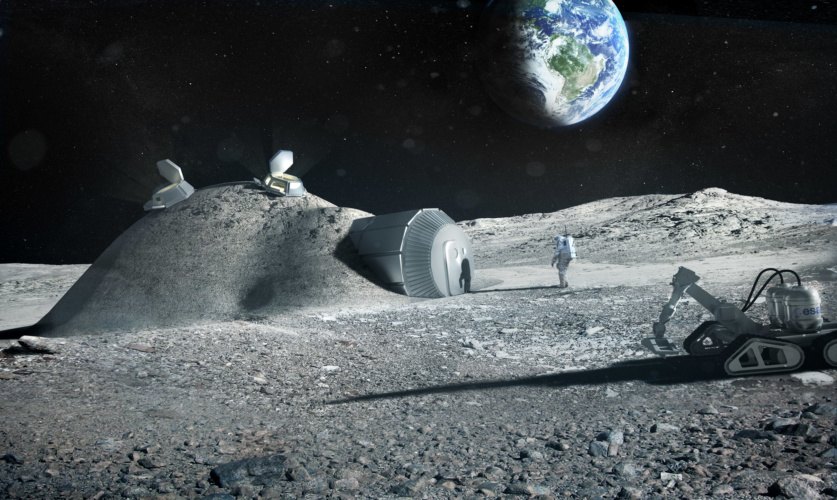
Sheffield’s Metalysis will be funded for nine months to further evolve an electrochemical process that separates oxygen and metals from lunar soil. In a recent study conducted by the firm with Glasgow University, the technology was able to extract 96 per cent of the oxygen from JSC-2A, a simulant material similar in composition to the regolith found on the Moon.
Astronaut urine could help build moon bases
Airbus to develop concepts for moon-orbiting space station
The process, which involves passing an electrical current through the material, has been used on Earth at an industrial scale in the production of titanium and tantalum since 2018, but with oxygen as a by-product. On the Moon, that oxygen would be of huge value for both human life support and as a key component in the production of rocket fuel for exploration beyond Earth’s solitary satellite, while the metal powders could be used in the construction of permanent lunar bases.
“We are really pleased Metalysis is involved in this exciting programme; taking an established Earth-based technology and applying it to a lunar setting,” said Ian Mellor, managing director at Metalysis.
“The fact that the process is capable of simultaneously producing both oxygen and metal powders is unique, offering potential solutions to two key areas of the ESA Space Resources Strategy.”
ESA estimates potential revenues of between €73-€170bn from extraterrestrial resource harvesting between 2018 and 2045. However, much of that will be dependent on the success of establishing a permanent presence on the Moon, to facilitate lunar mineral extraction as well as serve as a staging post for missions into deeper space.
“In the future, if we want to travel extensively in space and set up bases on the Moon and Mars, then we will need to make or find the things required to support life - food, water and breathable air,” said Sue Horne, head of Space Exploration at the UK Space Agency.
“The involvement of Metalysis in a programme that aims to do just that, by producing oxygen on a lunar setting, will showcase the UK’s space credentials on the world stage and help unlock breakthroughs that bring future space exploration a step closer.”

Glasgow trial explores AR cues for autonomous road safety
They've ploughed into a few vulnerable road users in the past. Making that less likely will make it spectacularly easy to stop the traffic for...